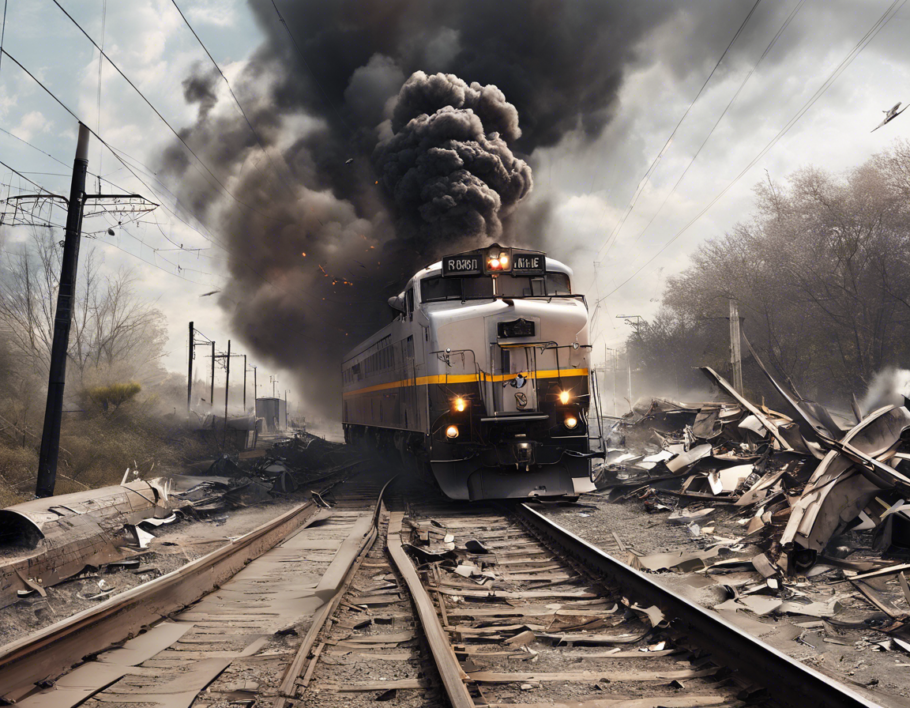Train accidents are a tragic occurrence that can result in significant loss of life, injuries, and damage to property. These incidents can happen due to a variety of reasons, ranging from human error to mechanical failures and external factors. In this article, we will delve into the causes of train accidents, the impact they have on individuals and communities, and the measures that can be taken to prevent such disasters in the future.
Causes of Train Accidents
Human Error
One of the most common causes of train accidents is human error. This can include mistakes made by train operators, signaling personnel, or maintenance workers. Fatigue and distraction are also contributing factors to human error in the railway industry.
Mechanical Failures
Mechanical failures in trains or tracks can lead to accidents. Issues with brakes, engine malfunctions, or broken rails can all result in a catastrophic collision. Regular maintenance and inspections are crucial to preventing mechanical failures.
Weather Conditions
Weather conditions such as heavy rain, snow, or fog can reduce visibility and traction, making it more challenging for trains to operate safely. Storm damage to tracks or overhead wires can also lead to accidents.
Infrastructure Problems
Infrastructure problems, including poorly maintained tracks, malfunctioning signals, or inadequate signage, can increase the risk of accidents. Investing in upgrading and modernizing railway infrastructure is essential to ensuring safety.
Human Factors
Human factors such as miscommunication between railway staff, inadequate training, or poor decision-making can contribute to accidents. Implementing improved training programs and communication protocols can help mitigate these risks.
Impact of Train Accidents
Loss of Life and Injuries
Train accidents can result in loss of life and serious injuries to passengers, railway staff, and bystanders. The physical and emotional toll of such incidents can be devastating for individuals and communities.
Property Damage
Train accidents can cause significant damage to railway infrastructure, train cars, and surrounding property. The financial cost of repairing and replacing damaged assets can be substantial.
Disruption of Services
Train accidents often lead to the disruption of railway services, affecting commuters, businesses, and freight transportation. The economic impact of these disruptions can be far-reaching and long-lasting.
Environmental Consequences
Train accidents can result in spills of hazardous materials, leading to environmental pollution and ecological damage. Cleaning up such spills and mitigating their impact on the environment can be a complex and costly process.
Preventative Measures
Strict Safety Regulations
Enforcing strict safety regulations for railway operations, maintenance, and personnel is essential to preventing accidents. Regular audits and inspections can help ensure compliance with these regulations.
Investment in Technology
Investing in advanced technology such as collision avoidance systems and automatic braking can help prevent accidents caused by human error or mechanical failures. These technologies can enhance the safety of train operations.
Emergency Preparedness
Developing comprehensive emergency response plans and providing emergency training to railway staff can help minimize the impact of accidents. Quick and coordinated responses are crucial in saving lives and mitigating damage.
Public Awareness Campaigns
Raising public awareness about railway safety through campaigns and educational initiatives can help prevent accidents. Encouraging individuals to follow safety guidelines and report any concerns can contribute to a safer railway environment.
Frequently Asked Questions (FAQs)
1. What are the most common types of train accidents?
The most common types of train accidents include derailments, collisions with other trains or vehicles, and incidents involving pedestrians or trespassers on railway tracks.
2. How often do train accidents occur?
Train accidents vary in frequency depending on location and safety measures in place. Globally, thousands of train accidents occur each year, with some resulting in significant casualties.
3. Are train accidents preventable?
While it is challenging to eliminate all risks associated with train operations, many accidents can be prevented through rigorous adherence to safety protocols, regular maintenance, and investments in technology.
4. What should passengers do in case of a train accident?
In the event of a train accident, passengers should remain calm, follow the instructions of railway staff, and evacuate the train if instructed to do so. Seeking medical assistance for any injuries is crucial.
5. How are train accidents investigated?
Train accidents are typically investigated by regulatory authorities and safety agencies, who analyze data, conduct site inspections, and interview witnesses to determine the cause of the accident and recommend preventative measures.
Train accidents have far-reaching consequences that affect individuals, communities, and the environment. By understanding the causes of these incidents, recognizing their impact, and implementing preventative measures, we can work towards creating a safer railway environment for all.

